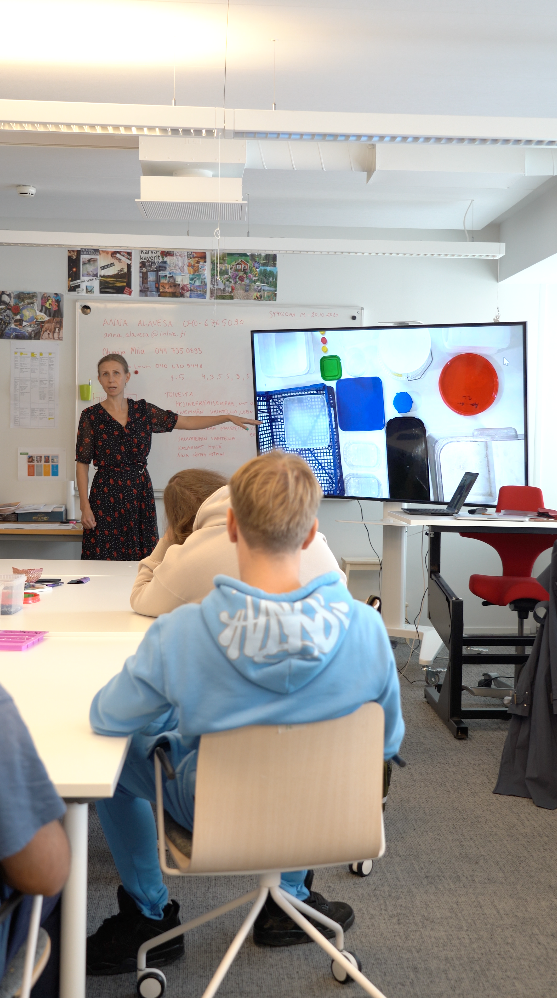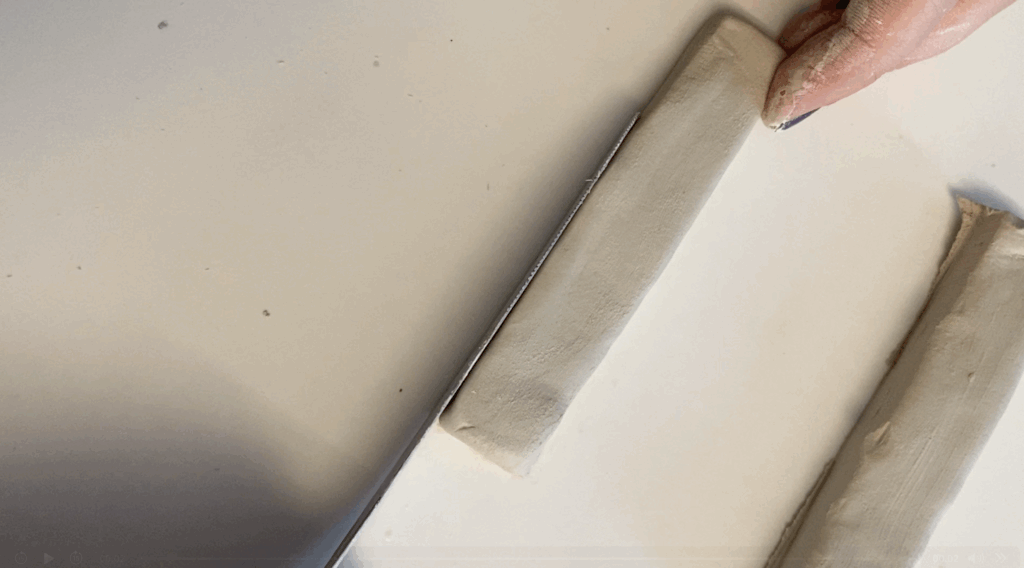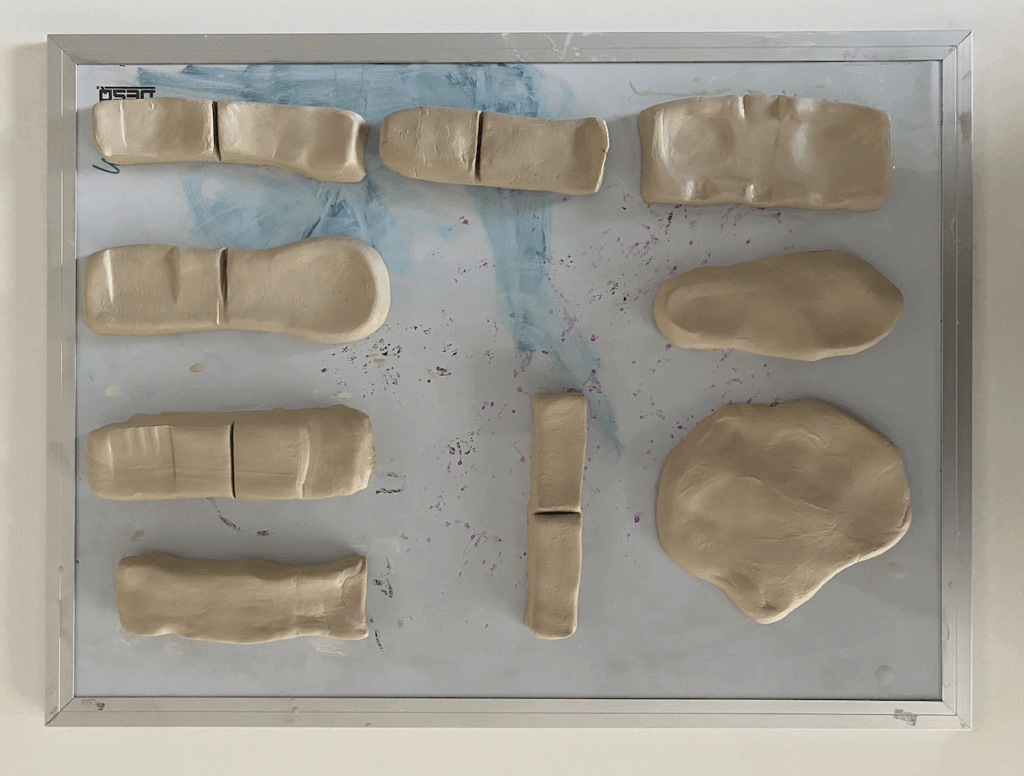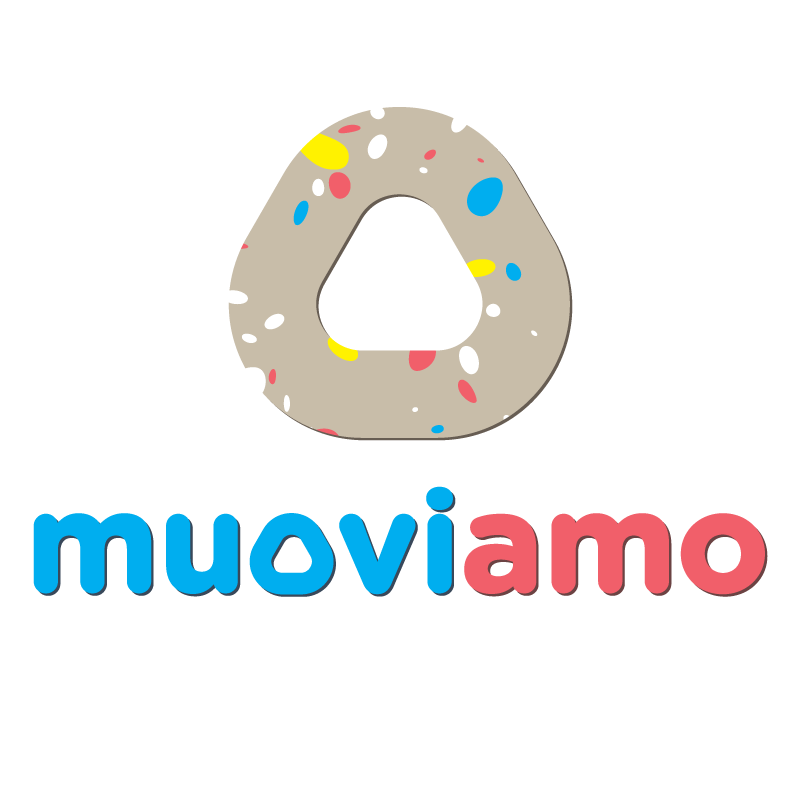This is a continuation of our article series, which tells the story of the collaborative project between Restaurant Nolla, Muoviamo, and TELMA students from Live Vocational College. The project’s goal is to transform the restaurant’s accumulated plastic waste into new, functional items for restaurant use. In the first part of the series, we introduced the project’s background and participants.
The design workshop and the students
Now, we delve deeper into the product development process! The first step was a design workshop held at Live Vocational College’s Sörnäinen campus, together with 10 TELMA students. The aim of TELMA education is to prepare students for working life and independent living. In this project, the students actively participate in various stages of product development and the recycling process. The workshop focused on understanding Restaurant Nolla’s needs and wishes for new items. The restaurant had a clear request: they needed new cutlery rests, a total of 200 pieces.
The need and goal
What is a cutlery rest? A cutlery rest is a small support placed on the table or plate, onto which cutlery can be laid during a meal. Its primary function is to keep the cutlery off the table surface and tablecloth, ensuring they remain clean and improving hygiene. In the workshop, we jointly researched different cutlery rest models and discussed what kind of functional characteristics Nolla hoped for.
Circular economy in practice

At the beginning of the workshop, we went through the entire recycling process step by step. We explained to the students how the plastic collected from Restaurant Nolla is first cleaned, then shredded into small granules. After this, the granules can be melted and processed using different techniques into new products.
This was an important stage, as one of the key objectives of the project is for the students to later participate in all stages of plastic processing themselves: from waste to finished product. This kind of hands-on activity is significant from the perspective of art and design education and environmental education.
Mona from Muoviamo explains the recycling process. IMAGE: Muoviamo
It helps students concretely understand the entire lifecycle of plastic and other materials in practice, teaches resource wisdom, and demonstrates how material considered waste can gain a new valuable life through creative design and processing.
Designing and modelling with clay

Students modeled cutlery rest designs using self-drying clay. IMAGE: Muoviamo
Following this introduction, the TELMA students were able to engage in creative work themselves. Their task was to design their own proposals and versions of cutlery rests using self-drying clay. To assist with the design and ensure practicality, we had the restaurant’s own cutlery on hand, allowing students to test how their clay models would fit the actual utensils. A variety of diverse, unique models were created in the workshop, reflecting each student’s personal vision of a suitable cutlery rest.

Cutlery rests designed by the students. IMAGE: Muoviamo
What’s next?
Following the workshop, the student-created clay models were delivered to Restaurant Nolla for their staff to review. This allowed them to examine a variety of physical design concepts and evaluate the practical advantages and disadvantages of the different forms created by the students. The feedback and insights gained from this review were crucial in guiding the final design process, which Muoviamo would undertake based on Nolla’s needs and the student’s creative exploration.
Stay tuned and follow the project’s progress towards the finished product! In the next article, we will tell you about how Nolla’s staff visited Muoviamo’s mobile plastic laboratory and got hands-on experience with plastic processing. The final part will reveal the ultimate cutlery rest design and show how the restaurant’s own plastic waste has been given a new life.
Visit Nolla
If you’re eager to see the finished cutlery rests we designed in use, or to discover the many other zero-waste solutions Restaurant Nolla has already implemented, consider visiting their restaurant at Fredrikinkatu 22, 00120 Helsinki.
We’ll be back soon with more from the project!
Read the third part of this article series here.
